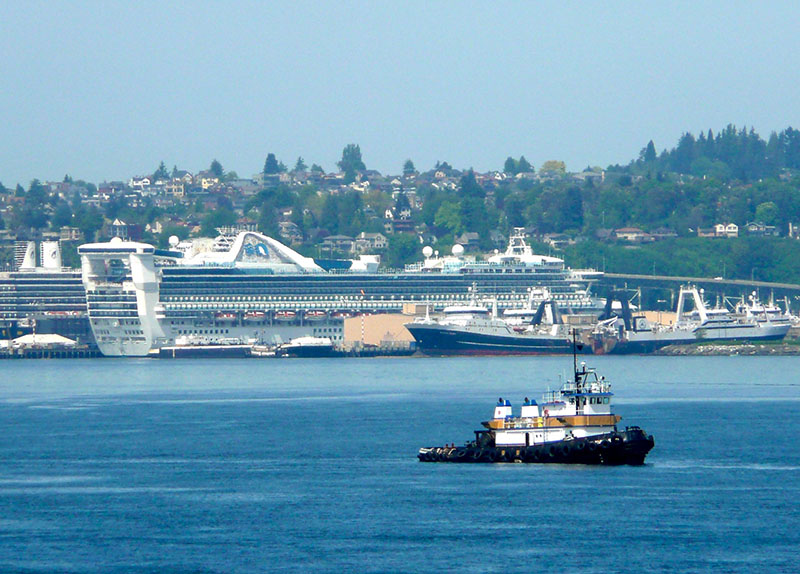The Environmental Protection Agency (EPA) has given its blessing for Washington state to designate Puget Sound a no discharge zone (NDZ), a move that would cost boat owners thousands for retrofits and has spurred at least one to consider taking his vessels out of the state.
Tugboats, commercial fishing boats, small commercial passenger vessels and National Oceanic and Atmospheric Administration research and survey vessels would have five years to comply, Washington said.
The state conceded in its petition to EPA that additional pump out infrastructure would be helpful. It also built in the delay because of some unique retrofitting challenges, “such as requiring engineered designs with extra safety considerations and in some cases, significant costs.”
How significant? For the eight passenger vessels affected, installing a holding tank in lieu of a Coast Guard approved marine sanitation device would require a vessel remodel or replacement costing at least $650,000. Tugboat bills would range “from negligible to $161,000 per vessel with about 100 of the 150 Puget Sound” vessels needing a retrofit, the state said.
“The sound-wide NDZ will effectively shut down our operations in Puget Sound,” said Capt. Dan Blanchard, owner of UnCruise Adventures, a small ship cruise line whose itineraries include Alaska, Hawaii, coastal Washington and the Columbia and Snake Rivers. “There are only two commercial pump out stations, and they are far away from where we operate and are physically too small to fit our vessels, meaning there are no commercial pump out stations for us. We will move our underway vessel operations out of Seattle and Washington state.
“Due to tonnage and stability regulations we will not be able to build tanks large enough to store the amount of effluent that we create in a week’s time, it's simply not possible from a physical standpoint. Like the rest of the NDZ process, the state grossly underestimates the cost of building such tanks in our vessels and ignored us when we shared with them the regulations on tonnage and stability that leave our hands tied.”
Blanchard said he will “continue to invest in modifications and installations of new state of the art federally approved marine sanitation devices, but alas these will be outlawed in the state of Washington.”
Tugboat owners are concerned, too.
“There are a few places for yachts to pump out, but there’s no commercial spot,” said Bob Shrewsbury, co-owner of Western Towboat Co., Seattle. “Not a lot of people are set up to deal with this.”
While all the new boats they’ve built in the last 15 years have fair size holding tanks, the new regulation could affect the older boats in Western’s fleet of 22.
The EPA said in a federal register notice that it has determined that adequate facilities for removal and treatment of sewage from vessels are “reasonably available” in Puget Sound. In response to comments that EPA’s action was regulatory overkill, the agency earlier said the federal Clean Water Act provides that a complete prohibition on vessel sewage discharges is OK “where the stated conditions are met.”
To comments on the cost of retrofitting and the stability challenge, EPA said it wasn’t required to consider any of those issues or the cost of using pump out stations.
The state Department of Ecology has not decided when its official rulemaking will begin, a spokesman said.





